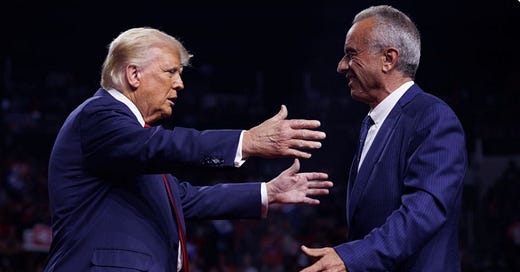Will Donald Trump betray RFK Jr?
The concept of “sheepdogging” in politics refers to the practice of using a populist candidate to herd voters toward an establishment pick.
Will Donald Trump betray RFK Jr?
A severe weather warning this week forced the cancellation of a “Make America Healthy Again” (MAHA) virtual town hall featuring Donald Trump, Tulsi Gabbard, and Robert F. Kennedy Jr.



